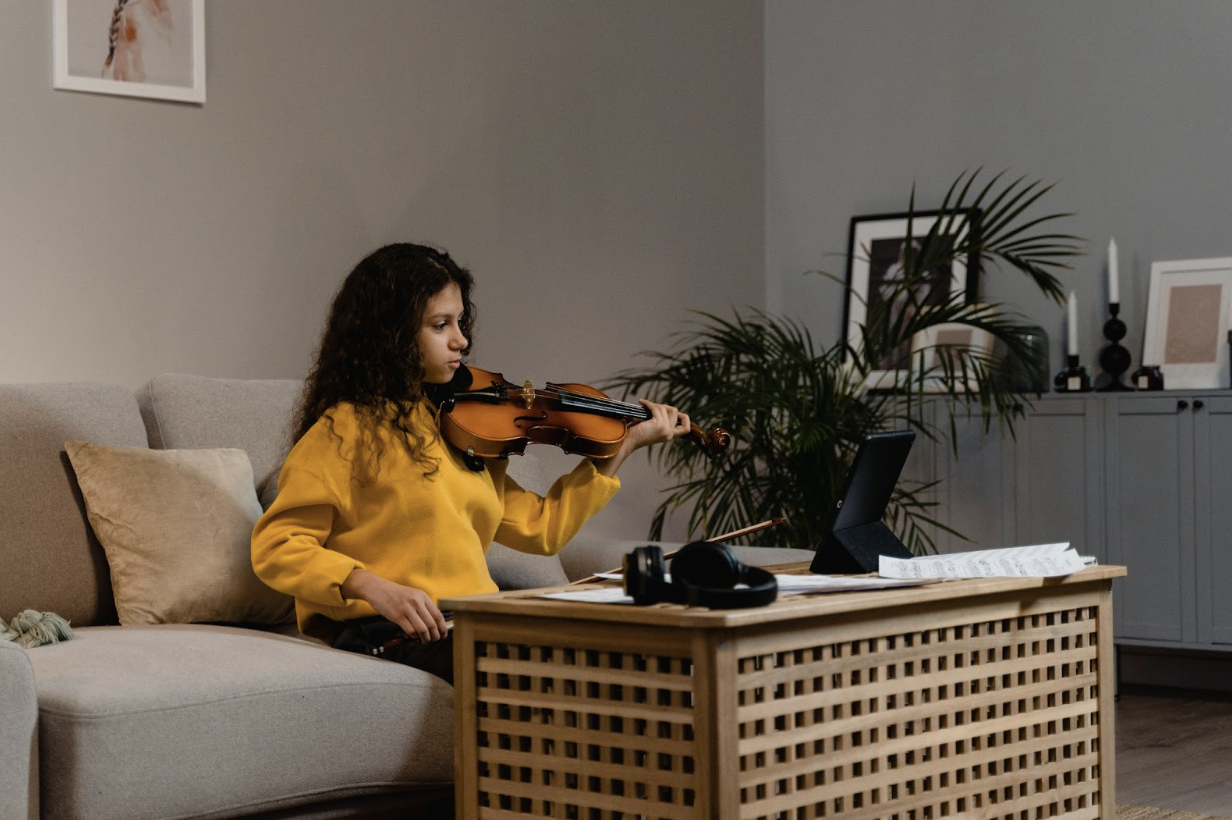How to Learn an Instrument and Make it Stick5 min read
Do you want to keep resolutions as the new year approaches but don’t trust yourself to make them stick? Are you interested in learning a new instrument but aren’t sure if you’ll give up halfway? As this year draws to an end and uncertain times lie ahead of us, we are here to help you make your resolution of learning a new instrument actually stick.
Contents
When can you start?
Well, there is no hard-and-fast rule that you only have to start new things at the beginning of a new year. In fact, there is no better time to start anything than the present moment. So go right ahead and start now! Begin to research about music and various instruments that might interest you. Look up the kinds of music that feature different instruments. Think of what you’d like and identify with it. You don’t necessarily need to think of an instrument that’s really popular if you personally aren’t keen on it. Instead, pick something that you know you will enjoy learning and playing because the goal is to stick with it for the long run. Look for some good music instructors online or approach someone you already know and get some opinions. Do some ground work and research well before you make a decision.
Sit down and maybe ask yourself a few questions like where do you see yourself playing this particular instrument; is it in a music school? On stage? A gathering with friends and family? Or simply for yourself? Whatever your hopes for this instrument are will give you an idea of what direction to take.
What instrument should you pick?
There are a wide variety of music instruments that you can choose from. The best way to get started would be to visit a music store and try out a few different instruments. Get a feel of what interests you and inquire about it. If you notice that some instruments catch your eye, try to think about why they do. You could also carry along a friend or family member who knows you well and will give you honest suggestions of what instrument would suit you. But more importantly, dig deep and pick something that you will personally be happy with. Look for something that is ‘you’. If you pick something that really complements who you are and what your personality is, you’re more likely to stick with it.
Also, think about more practical issues like your budget, your practice space, whether there are volume limitations where you plan to rehearse, do you see yourself in a solo or group setting and so on. Being practical is very important. You cannot pick an instrument that doesn’t practically fit in with your normal lifestyle.
Create the space and time for your instrument
Don’t expect yourself to stick with your new instrument if you don’t treat it with respect. You cannot have your guitar case lying around with a mountain of clothes on top of it or your drum set sitting in a corner covered in dust. If you are going to invest your time, energy and money into this hobby then make sure you value it. Create a space to practice your instrument regularly. When it is time to practice, everything that you need should be easily accessible.
Take the effort to remove every possible obstacle and keep that space clean and solely for your rehearsal. Also dedicate some time everyday or however often you can to practicing and learning new things on your instrument. Making sure that you are disciplined when it comes to rehearsing will help you push on days when you don’t necessarily feel motivated.
Both your practice space and time need to be completely free from any distractions as much as possible. You will need to adapt your routine if you really want to make progress with this new skill.
Form a habit
If not done wisely, it is easy to lose a habit as quickly as it is built. It can be tempting to skip practice days when you feel bored or unmotivated. Similarly, if you push yourself too much at the start with too many hours of practice, you might end up getting burnt out after a few weeks and not feeling like continuing. Don’t let this happen; discipline yourself to dedicate around 20-30 minutes everyday or 3 hours in a week to practice. Learning an instrument is not a one-day race, but rather something you work on every day.
You will also hit against many challenges and feel frustrated with yourself as a beginner. But don’t give up. Learning a new skill never comes easy and it certainly doesn’t happen overnight. Focus on your goals and just take it one step at a time.
Making the effort to not only get there but also to be there
Getting to a point is easy, but staying dedicated to remain there is the tricky part. Keep in mind that the whole future of your skill literally lies in the daily small and mundane decisions that you choose to make. Learning a new instrument comes with a number of benefits; it will improve your self-esteem, your brain development, your mental health and just bring you pure happiness and enjoyment. If you’re looking to join a music school, a band or a local music establishment, that is another reason to keep going. However, all that being said, life is full of uncertainties and you never know whether learning this instrument will get you anywhere past your front door. So constantly remind yourself that you’re doing this for you, and not for any outward praise from the world.
Learning a new instrument can be tricky. There will be times when you have extremely high highs and also very low lows. But it is what you do in the in-between that really counts. You cannot expect to master something overnight, and neither can you expect yourself to always have the enthusiasm to carry on. This is why dedication and discipline will take you a long way. Allow yourself rest days and times where you just make mistakes. Learning a new instrument is a daily battle and a lifetime of learning, but as you keep showing up and moving forward, you will get there.





